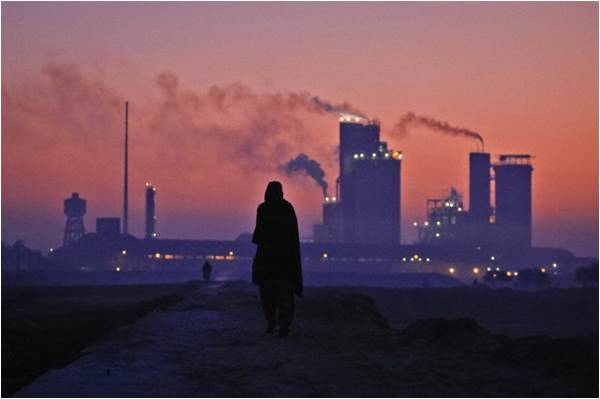
We have a new finance minister in the saddle of the government. While the immediate focus of the government is going to be fire-fighting: help the flood affectees, maintain the macroeconomic stability, manage the exchange rate etc. It is also a good time to open a discussion on increasing exports and productivity.
Does Pakistan need a new industrial policy? If so, what should it focus on? Do we need a government that plans for the economy, sets targets, monitors, rewards those who perform and sanction those who do not or should we let the unfettered private sector take its course and the government should keep out of the economy? There is enough political economy literature arguing for both sides of the coin. Which side to pick? These are some of the questions that come to mind when one thinks of the need of having an industrial policy or not!
Dani Rodrik, a Turkish economist based in the US has launched a new paper recently where he has argued for an “Industrial Policy for Good Jobs”. According to him, an industrial policy in addition to addressing technological, learning and other considerations should also aim to create “good” jobs in the economy and take into account green environmental issues as well. These externalities related to employment creation should be targeted not through the traditional instruments of industrial policy such as the tax cuts and subsidies. Rather, through “collaborative, iterative interaction whereby public agencies supply a portfolio of customized public services in exchange for firms undertaking soft commitments on the quantity and quality of employment.”
Rodrik goes on to explain this concept in detail in the rest of the paper, including pitching a proposal for doing so. He advocates that the services sector and medium and smaller sized firms also need to be included in a “self-consciously crafting an improved set of policies” in addition to the traditional focus on manufacturing and globally competitive industries.
What a forward-looking economist like Rodrik is admitting in effect is that unfettered market capitalism is broken in countries like the US. He is calling for government intervention to help create more jobs, to retain jobs, to stop industries from cost-cutting related relocating from the US to other parts of the world and such other interventionist measures.
Rodrik’s ideal in mind that he only brings into focus almost in passing towards the end of his paper are the successful examples of Japan, Southeast Asian countries, and China where the state effectively planned, innovated its industrial policy and worked closely with the private sector to promote those prototypes that produced results and banished others that did not. This is at the back of this otherwise sophisticated sounding new paper by Rodrik and there is enough political economy literature that has been discussing this new model of industrial development for decades now.
For the US, job creating and environmental focus is being advocated since due to automation and global competitiveness driven technologies are leading to unemployment particularly amongst the unskilled blue-collar workers and it is in turn leading to social and political problems. For Pakistan, the focus could be different. However, the perennial question remains: do we need state-led economy and industrial policy reflective of it or not?
Japan, Southeast Asian countries, and China could experiment with state-led industrialization since all of them had strong state and state capacity of their bureaucracy to plan, calibrate, adjust, collaborate, and effectively hand holds of the private sector to deliver. Pakistan has a strong state when it comes to repression, it does not have the state capacity to push for development effectively as the experience of post-Bhutto decades has shown.
Pakistan’s elite has been a rent-seeking elite that used the instruments of industrial policy in post- Bhutto decades to favour a narrow base of influential clients and there has been misuse of bank loans, subsidies, and tax cuts. Can one expect a clientelist elite to rise above its narrow personal interests and deliver for the economy of the whole country by enjoying some degree of “relative autonomy” of the state and disciplining capitalists, the services sector, and small businesses? Is Pakistan’s civil and non-political elite and its bureaucracy capable of it? On the face of it, it looks like a daunting task.
Akbar Zaidi is of the view that the small-scale industrial informal sector is successful in Pakistan because it does not have much to do with the state. The small-scale informal industrial sector that constitutes 90% of manufacturing units and produces 30% of GDP, according to an old estimate, is thriving and dynamic in Pakistan and the economy overall is private sector led. Do we really need an interventionist industrial policy that would be executed by rent-seeking civil and non-political elite?
Even the present large-scale manufacturing sector looks towards the government very often to protect its interests and is continuously lobbying to get more concessions from the government. So there is definitely a need for experimenting with “collaborative, iterative” industrial policy in Rodrik’s words in countries like Pakistan. However, such an industrial policy would only be successful when the elite of the country decide to push for public interest above their narrow personal and organizational interest and it needs rule-setting whereby every stakeholder has guaranteed role in running the country as long as they deliver and rise above their battles for survival to long-term view of the development of the country.
Pakistan first has to solve its elite problem before it can sort out its industrial policy or any other developmental issue and if not; the logjam of over 34 years will continue. We will be still undertaking fire-fighting instead of proactive planning to take the country on the path of progress and socio-economic, political, and human development.
The writer is an Islamabad-based social scientist. Email: fskcolumns@gmail.com
Twitter: @FoqiaSadiqKhan

